Do you know that specialty coffee helps climate and reduces the carbon footprint? Let’s see how this is achieved.
This morning is quite unusual. I and my wife were still in the bed when our big boy rushed into the bedroom and exclaimed “everywhere is white! Look there is snow everywhere!”. Well, we looked out of the window and saw a winter fairy tale. It was snowing a couple of times, but it was not cold enough for the snow to stay on the ground without melting.
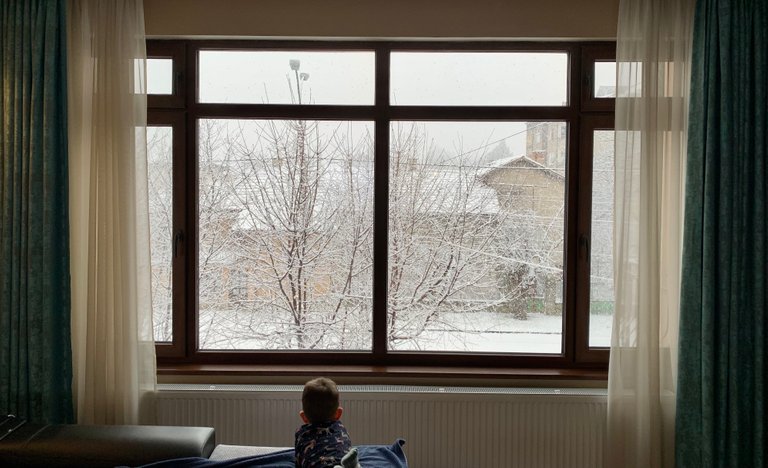
I found it perfectly normal to light the fireplace and enjoy my cup of coffee and the warm fire while I write this post. The morning cannot start better. The kids are enjoying the view out of the window so I have some peaceful moments to write in the warmest community here in HIVE.
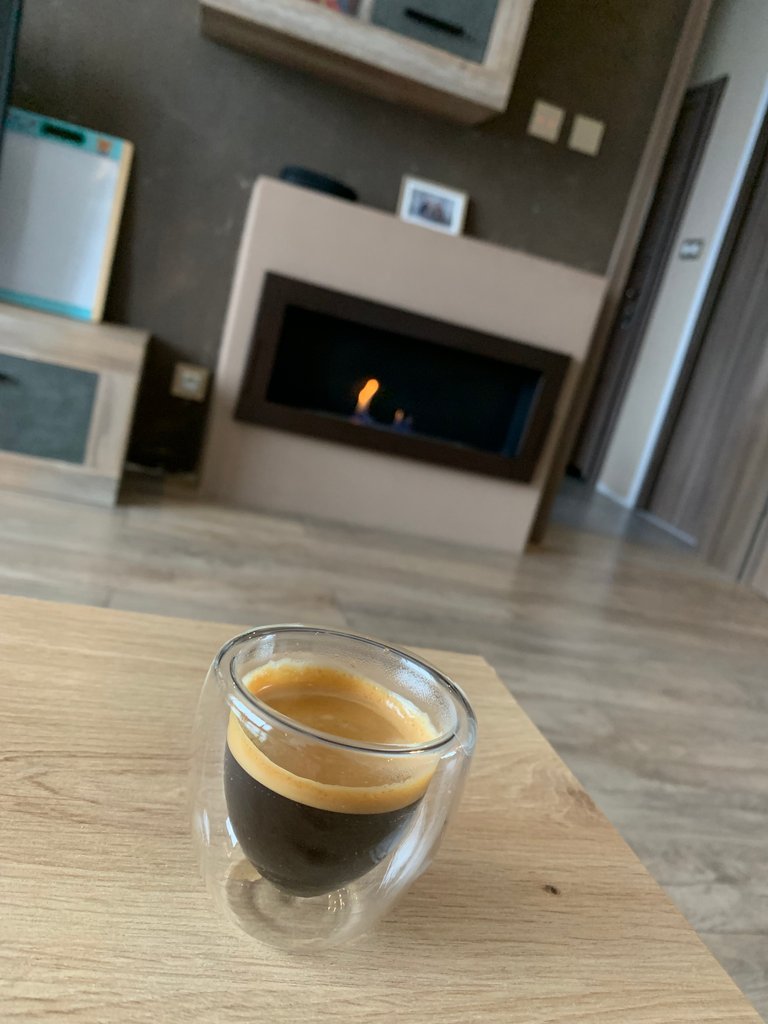
Last coffee delivery came with some blend Arabica beans. It’s not usual for us to buy blend beans, but since they are cheaper, this really helps the family budget when it’s a bit tight. I have bought this blend quite some time ago and I bet it’s different now, mainly because the beans are from different seasons and they are surely a bit different.
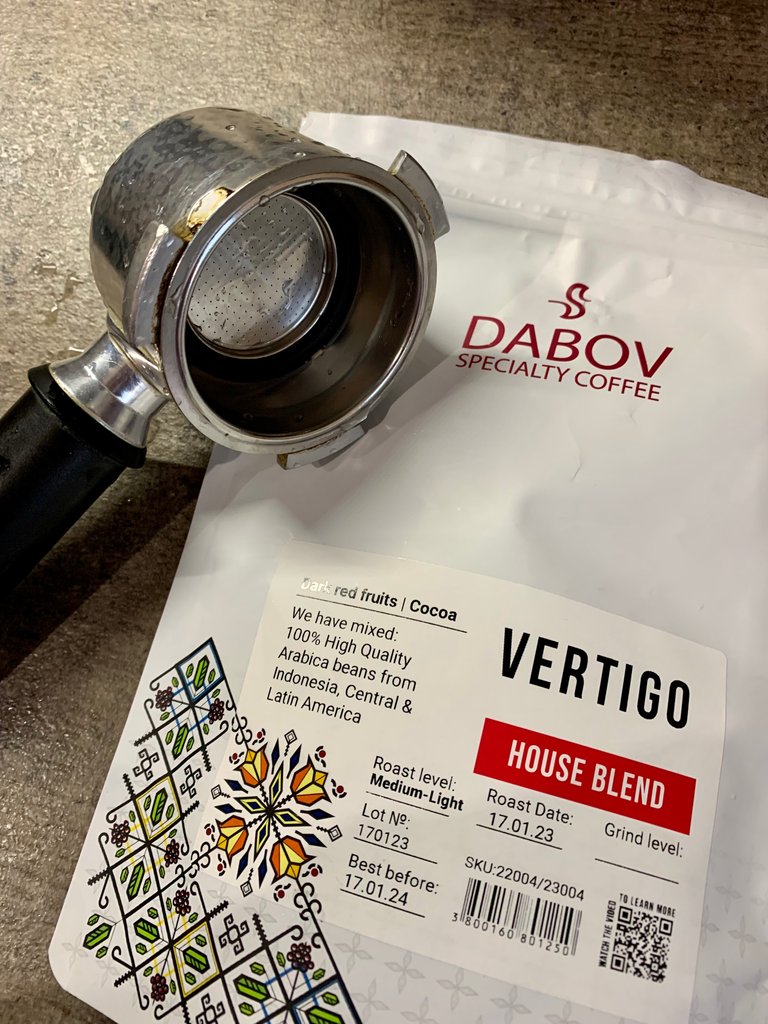
Vertigo House Blend houses coffee beans from Latin America, Central America and Indonesia. As these beans have much in common, they are different too and combined, they create a complex and round flavor. And well, all these coffees from small farms really help build a sustainable and balanced nature.
Do you know how mainstream coffee is bad for the climate? Do you know that it harms the planet? Let’s see how…
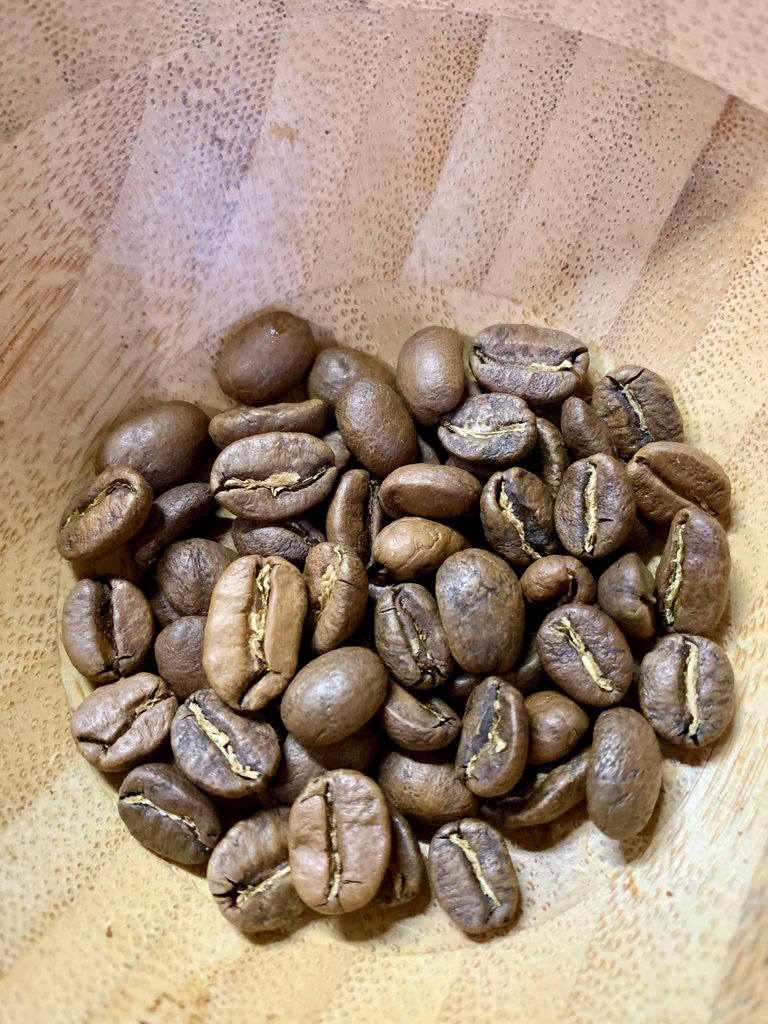
Beans from blend coffees roast at different rates and also, bigger beans roast slower. In the website of Dabov it’s said that these beans are medium-dark roasted, but when they came it was written medium-light. I’m quite happy for that change!
So… mass produced coffee varieties need big and open spaces. In the last years, farmers in Honduras have destroyed vast amounts of forests in order to meet the increased worldwide coffee demand. Growing coffee in direct sun also increases the speed of ripening the cherries, also the shorter development period for the coffee tree fruits. The result? Sacrificed quality and taste for the sake of bigger yield. But there are other things that came afterwards. Coffee plants do suffer from more diseases when in direct sun, which means a lot more pesticides and treatment is needed. Most of the time these are chemicals which have doubtful impact on everything and everyone.
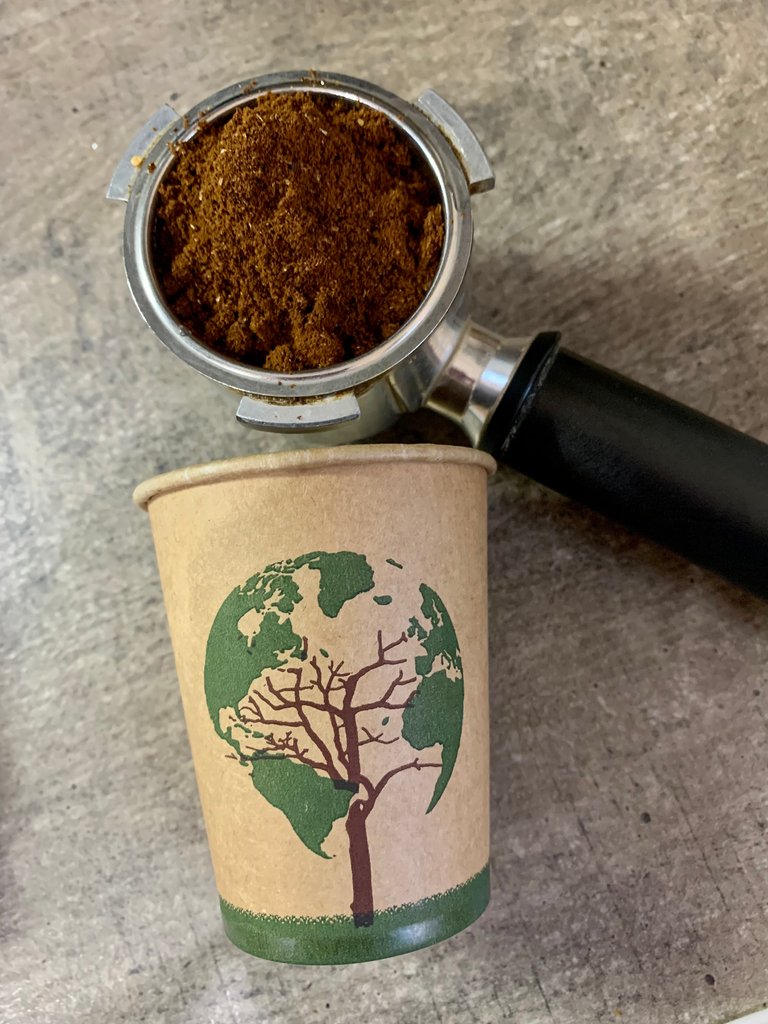
One of the small farmers in Honduras - David Benitez has devoted his life to specialty coffee production. He grows the coffee in his farm between the trees in the shades of their leaves. This doesn’t stress the coffee plants and the results are healthier and more flavorful beans. Coffee grown in the shades needs a lot less water too! Of course, small farmers and this type of coffee production have a lot less production, but they are rewarded better than the mainstream coffee farmers. The specialty coffee roasters work most of the time directly with the farmers so the can deliver the beans at affordable prices and yet reward the farmers better.
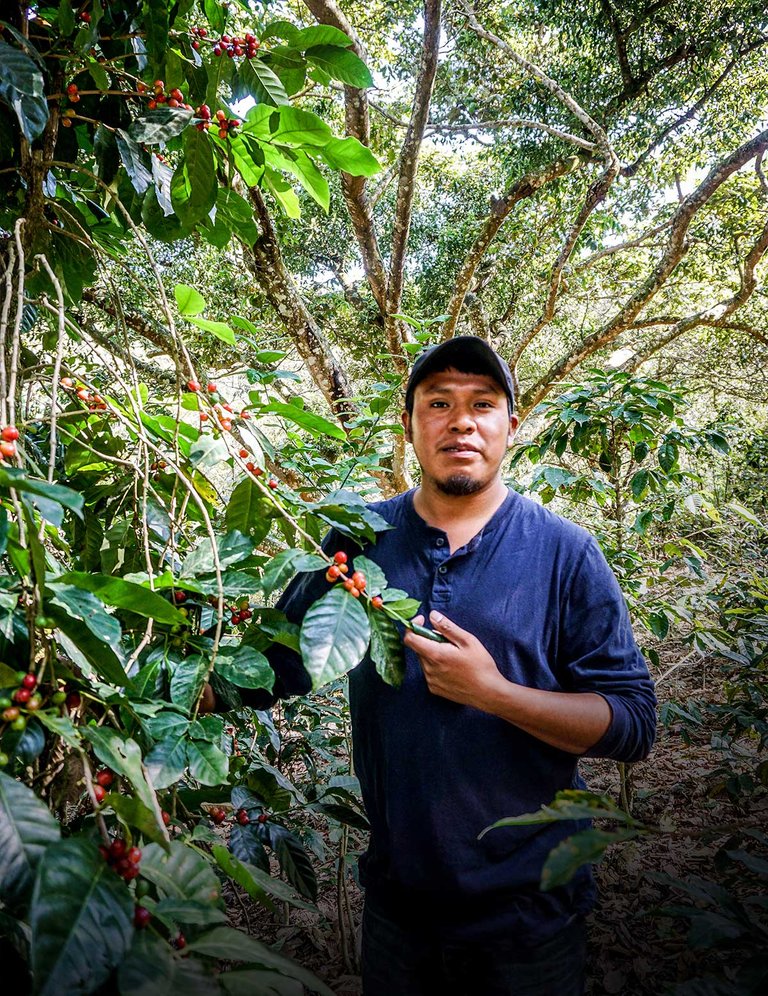
David Benitez in his 2 acre farm. Source: https://shop.arborday.org/heritage-batch-02
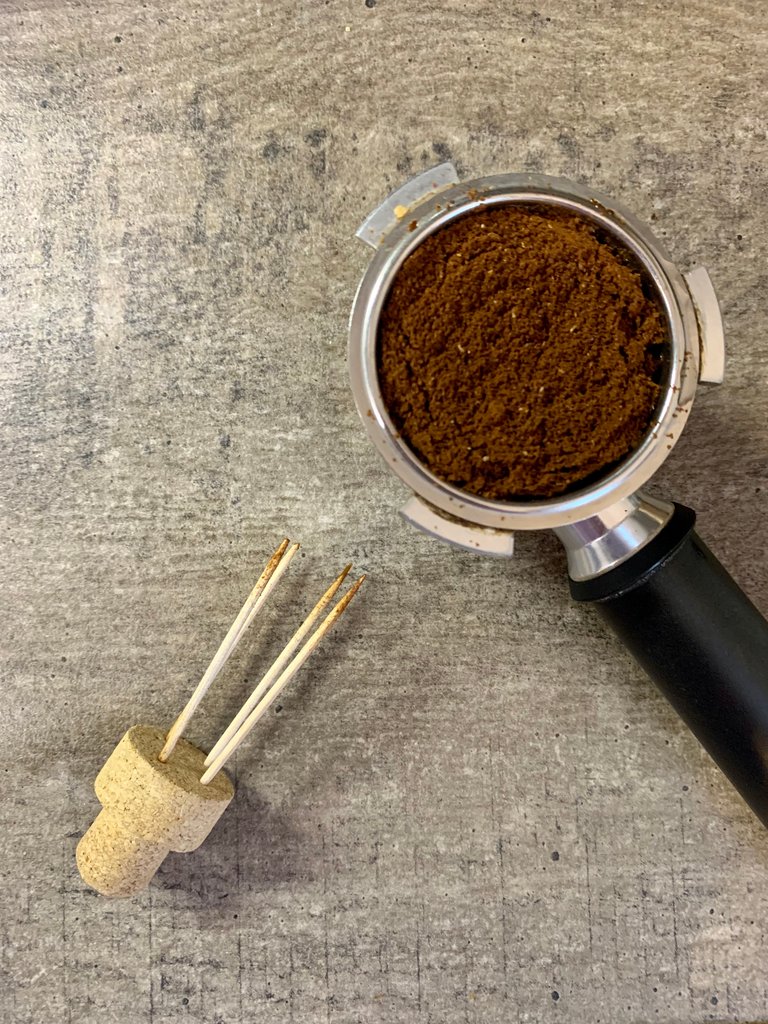
Another big issue is that coffee processing generates a lot of biological waste. All the cherries are thrown out to rot in the sun. Could they be used for something else? Of course yes, but this requires some effort.
David Benitez gets some of the coffee cherries and creates natural bio fertilizer for his coffee plants. This, he closes the production process. Also, he reuses most of the water for washing the coffee cherries to water the plants. Good products really do require a lot of effort, but after all it’s worth it. When you close the process and use the natural shade above the plants gives more consistent crops and quality of the coffee beans.

Last but not least, coffee cherries have another use growing in the last years. Food additive! The farmers from the small farms started to put some coffee cherries in the tortillas they give to their workers for lunch. Also, some chefs in top restaurants use coffee cherry flour to flavor their pastry. The cherries have fruitful taste and add some complexity to the overall flavor and specialty coffee cherries are even sweeter and fully flavored. It’s great to see how waste material, how coffee cherries were known until now, can enter the food production and create another layer to the flavor.
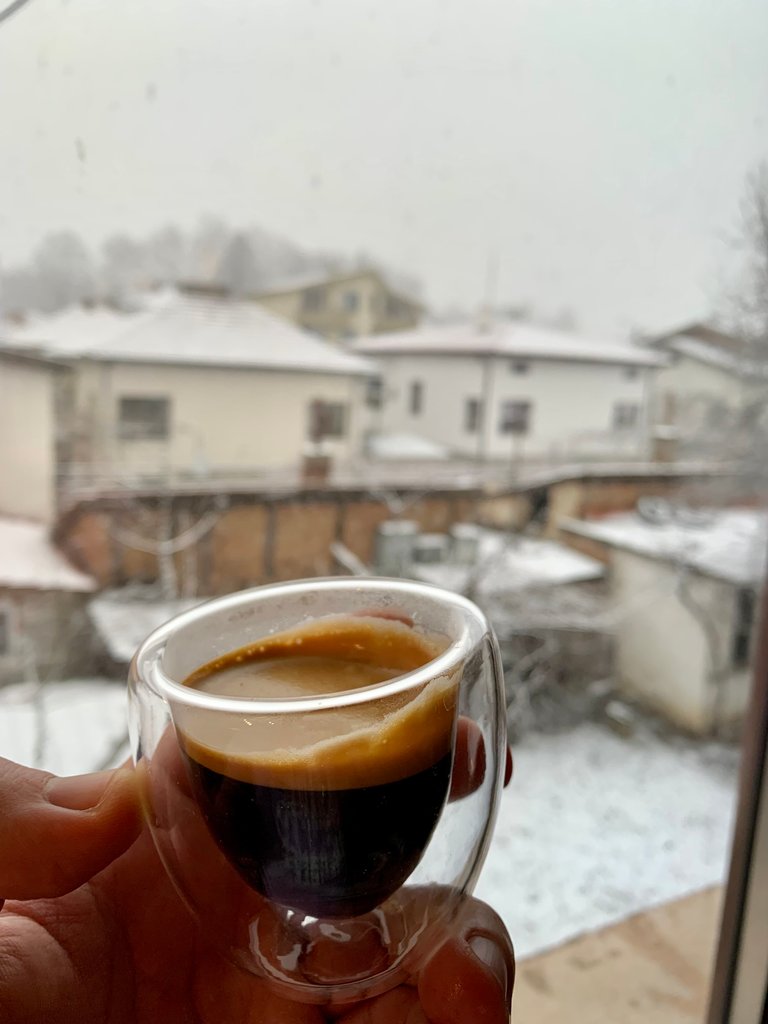
Of course, specialty coffee is a bit more expensive than the mainstream one. But, I can see price difference, especially here in Bulgaria is not that big. But when you give 20-30% more money for a product that is several times better and helps reward the farmers and the climate better, you know it’s totally worth it. And when you start consuming this type of special coffee, you’ll easily fall in love and maybe will never want to step back and grab a bag of commercial beans from your local store.
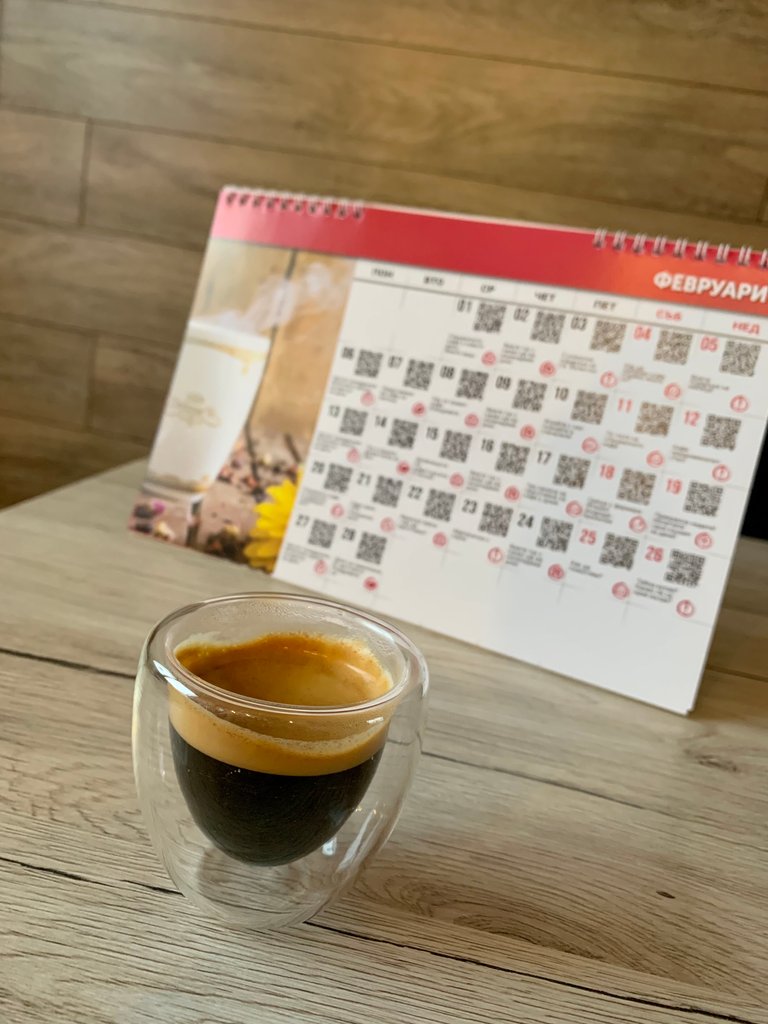
I’ll be happy to hear your opinion. Did you know that mass coffee production harms the nature? Would you pay a bit more for your coffee in order to help reduce the carbon footprint? I bet there are a lot of ways that farming can become more ecological and nature friendly. It’s good to reward people that help this happen.
That’s for now, I’ll wish you a pleasant weekend. Stay warm and have a nice day!
Bye!
That’s absolutely fascinating. I had no idea that commercial coffee farming was bad for the environment. You’re totally right to buy speciality beans and your friend’s farming methods are innovative. I especially like it that he’s trying to use the cherries and that he reuses the water; very sustainable.
The snow looks lovely, too. Very interesting 🤔
Yeah, it’s hard to imagine that planting coffee would harm the climate and cause “deforesting”. Hopefully more people would start to search for farmers who run small farms and produce superior quality coffee.
😊
Anything to protect the environment is worth it. So yes, I would pay a little more just for that.
Snow! Damn! I'll have to face that in a few days, I guess.
Your little ones are maturing, and it seems like you can have relaxing weekend coffees. That's awesome, and just the break you need for when your family extends.
Thanks for stopping by:)))
You going back to England? Snow isn’t a bad thing at all… but if you are used to Jamaican climate now, it’s gonna feel weird. Of course it’s a good diversity.
The children grow very quickly. I cannot imagine that the big guy is already 3 and a half years old. He is quite reasonable already and has a mind of his own. Time really flies…
As for the coffee production, it’s good that we can reward small farmers producing really high quality coffee with no impact on nature.
Yes, back to the UK in a few days... then off to Egypt for a short time. So I think I can tolerate the cold for a short time:)
I find very interesting all the information you have shared with us, I am pleased that in some parts of the world is making use of what was previously discarded and that there are alternatives to acquire coffee that in its production is considered the preservation of our environment, hopefully soon it will be done that way in every corner of the world.
Specialty coffee small farmers should be greatly rewarded for what they are doing. They definitely try to keep the nature intact.